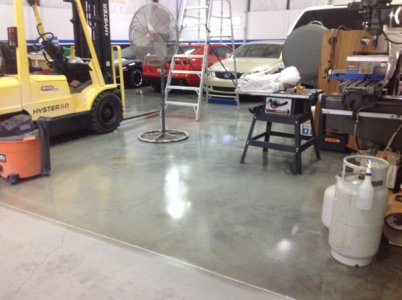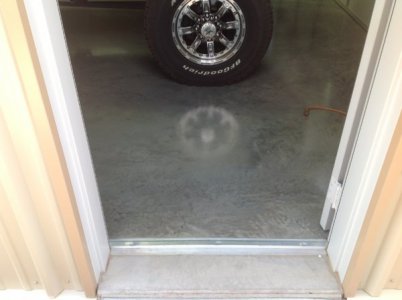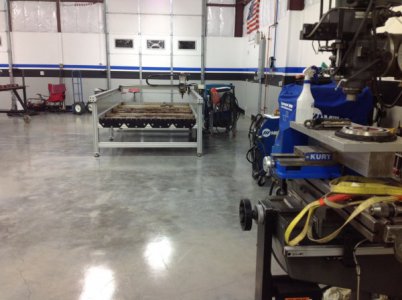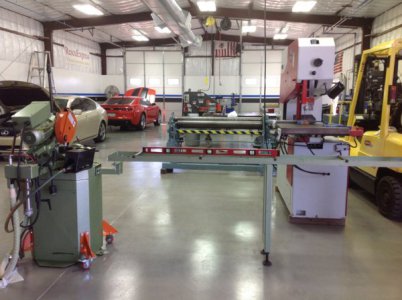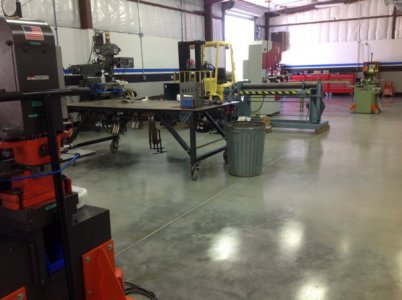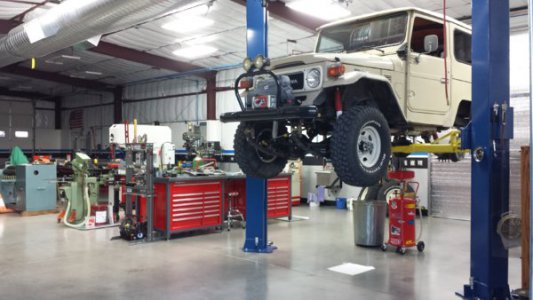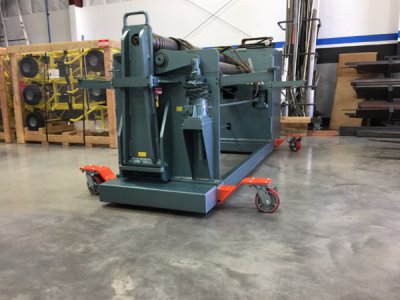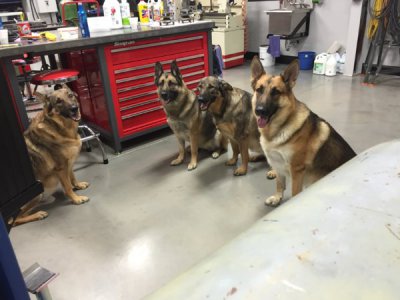- Joined
- Nov 14, 2014
- Messages
- 851
+1 on sealing your concrete floor. A sealer will prevent oil absorption, but more importantly, will keep concrete dust down, AND, prevent, dirt, dust, chip-scarf-crud, and spider web bodies from layering up on the concrete.
My shop floor is a two bay building - built by the previous owner of our house. I am sure he didn't seal the floor. The uncured cement acts as a dirt magnet. To the point I've had times when the grey concrete was actually brown - the color of the soil around the house. Anyway, I wish I had sealed and painted the whole shop when we moved in - impossible now with all the machine tools scattered around.
BTW, if you don't like the idea of paint/epoxy or otherwise, you could use floor wax. I think this is what big box warehouse style retail stores use - like Home Depot and Costco. Apply the wax after the sealer and rent a buffer for a day to rub it in. The wax will absorb into the concrete surface and prevent oils, water and dirt from absorbing. I think it acts like a surficant. The concrete texture prevents the wax from being slippery. The University I used to work waxed all the concrete floors in their PHys Ed building - which had a tremendous level of foot track. - something like 10,000 people a day. They saw very good results. Long lasting. No paint flaking, hence no big deal to recoat when needed.
Glenn
My shop floor is a two bay building - built by the previous owner of our house. I am sure he didn't seal the floor. The uncured cement acts as a dirt magnet. To the point I've had times when the grey concrete was actually brown - the color of the soil around the house. Anyway, I wish I had sealed and painted the whole shop when we moved in - impossible now with all the machine tools scattered around.
BTW, if you don't like the idea of paint/epoxy or otherwise, you could use floor wax. I think this is what big box warehouse style retail stores use - like Home Depot and Costco. Apply the wax after the sealer and rent a buffer for a day to rub it in. The wax will absorb into the concrete surface and prevent oils, water and dirt from absorbing. I think it acts like a surficant. The concrete texture prevents the wax from being slippery. The University I used to work waxed all the concrete floors in their PHys Ed building - which had a tremendous level of foot track. - something like 10,000 people a day. They saw very good results. Long lasting. No paint flaking, hence no big deal to recoat when needed.
Glenn


